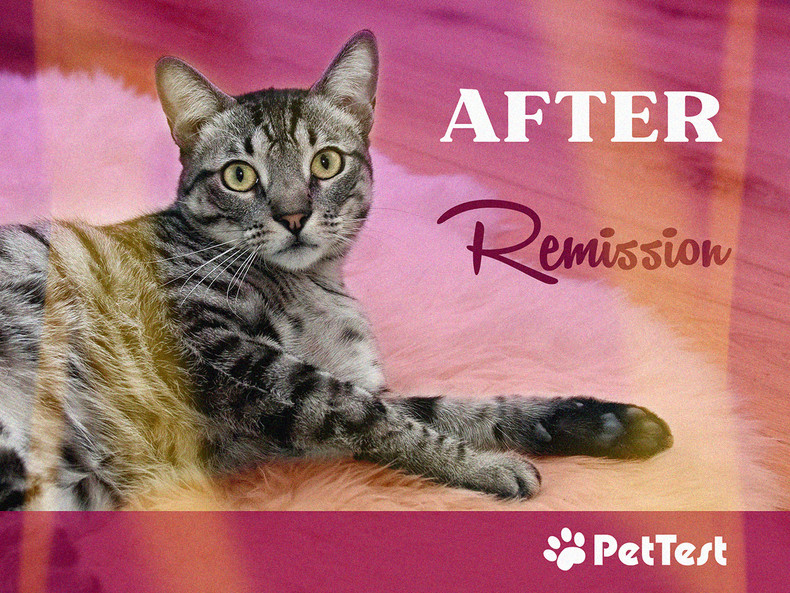After Remission...
Normal blood glucose levels for two weeks without insulin is the general guideline for Kitty to be in remission or diet-controlled. This is a HUGE victory to be celebrated! You got this down! Of course there are people like me, who would ask okay so if I stop testing what if it comes back? What about weeks three, four, five, and so on? What if, what if, what if. This can be a dangerous thing for your health and the health of your Kitty and create a stressful environment, especially if the fur parents are overly anxious. We all know that Kitty is highly sensitive to these things, so focusing on the next steps after the big victory can help you relax and keep Kitty on the right path.
Should you keep your testing supplies? I personally would unless Kitty has another chronic condition necessitating more frequent follow-up visits with the vet (who should test their blood sugar even after remission). If Kitty is healthy otherwise or is on a three or six-month checkup schedule, keeping testing supplies and insulin (while it is still good and not expired) just in case is a good idea. I cannot tell you how many times I have been unable to find Kitty’s specific foods that I KNOW are diabetes safe. Even the same brand with a different texture or flavor can make a difference at times. On the occasions when I cannot find the “trusted food”, I will test about 30 to 45 minutes after they eat. Since I still have my journal, I can check these readings against the “trusted food” post-prandial (after eating) blood glucose levels. If it is in range, we are good to go, and we have added a new flavor option. I would do the same thing with new treats, food toppers, or any other kind of dietary change, even if temporary. The advantage of some of this testing is really to see how sensitive Kitty is to small changes. If Kitty’s blood sugar spikes with a small change, you may have to test more often. Even the same exact food can have minute recipe changes that can affect Kitty’s blood glucose.
Spot checking fasting glucose at least for the first month after remission can tell us if we are continuing on the correct path with steady blood glucose levels without insulin. Kitty is used to being tested anyway, so as I am a worrier, I keep checking here and there. I want to KNOW Kitty is totally okay with no doubt.
What if we didn’t change a thing and Kitty’s blood glucose is way up? This is why I would hang onto the insulin. It is completely normal to have a false start or two. Kitty might have gone two weeks and been fine – maybe even three or four. We know environmental changes, stress, and other things can contribute to a slight elevation in blood glucose. It is when we start to see a consistent rise or even high-normal levels, that would be an indication that their food has changed, or Kitty is no longer in full remission. That, of course, just plain stinks, but it does happen sometimes. It does not mean anyone did anything wrong. Every Kitty is different, and remember, two weeks is the official guideline. If you feel better waiting for three or four weeks to be on the super safe side, there is nothing wrong with that. You might even be able to continue to tweak Kitty’s diet to get optimal numbers all the time. Depending upon how ill Kitty was when diagnosed, it would be fair to keep testing longer if Kitty was very ill at that time. If continued testing helps our fur parents relax a bit, that will also help Kitty stay relaxed.
You did an amazing thing: Getting Kitty into remission! You tested, treated, and adjusted Kitty’s diet and activity levels. Take a minute or an hour to celebrate. Go You!!!
Even if continued blood glucose checking results in having to change Kitty’s diet a bit more or having to treat with insulin for a bit longer, we know at the very least that Kitty CAN make it into remission. She may need more time and adjustment, but Kitty can get there. That means you are doing it right! Not every Kitty is going to fall into that two-week guideline, and that is completely okay and normal for some kitties.
If you need help or have questions, hop online to the Feline Diabetes Support Group and share your questions, ideas or experiences. Someone is always there to answer!

